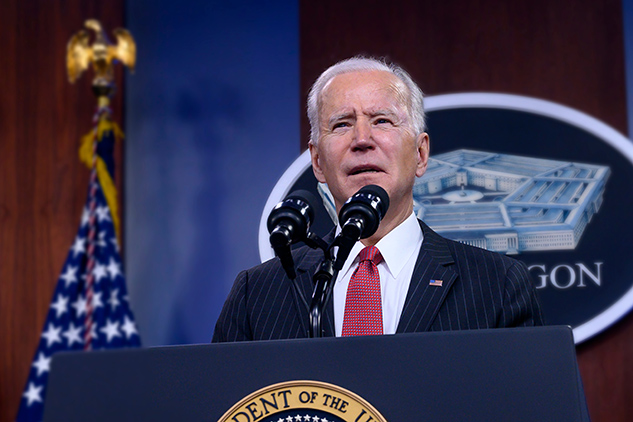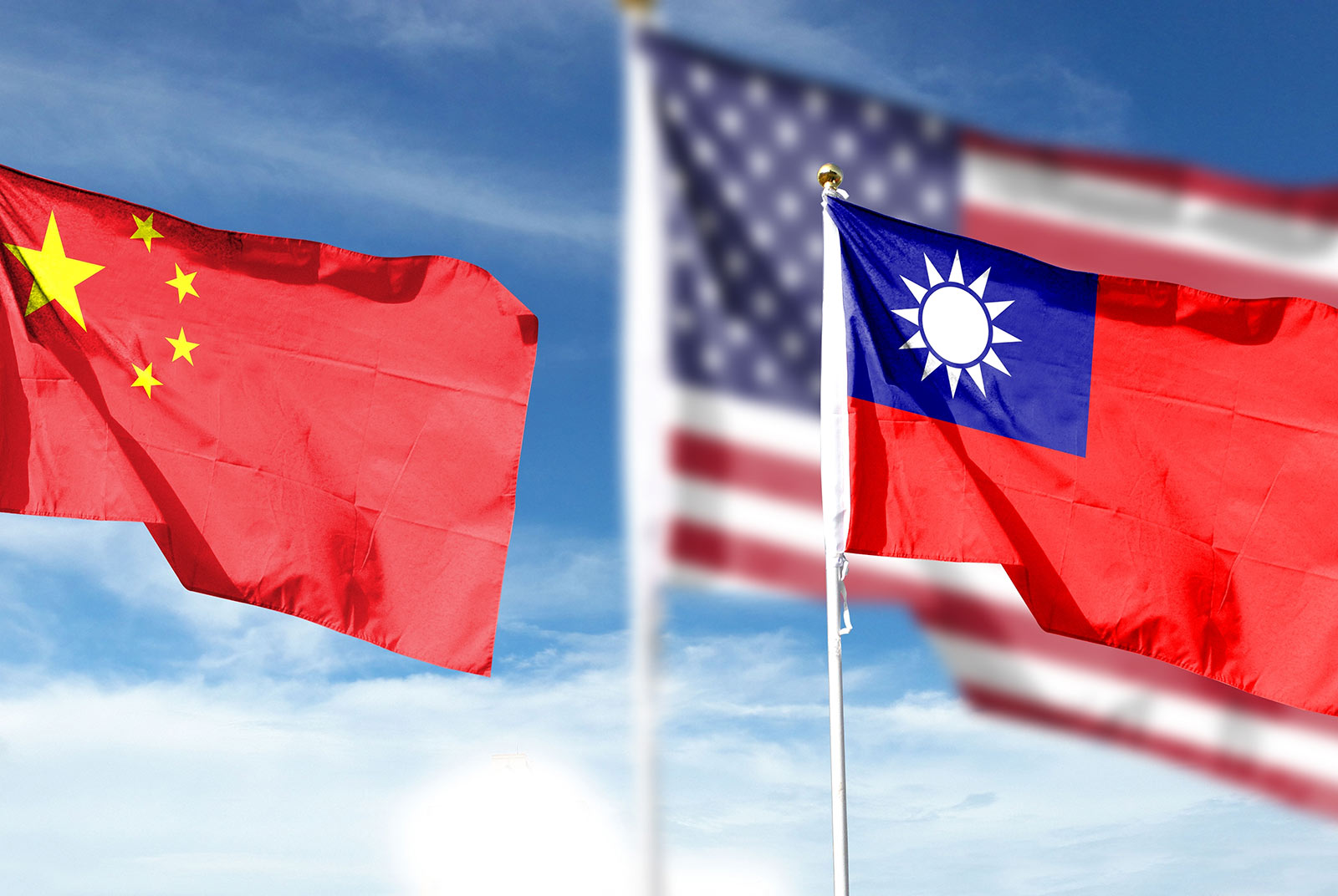U.S. and Taiwan: 2022’s Reverberations from 1979

Source:Shutterstock
Since June 2021, the Biden Administration has repeated or initiated four economic initiatives with Taiwan that hold promise for improving the bilateral relationship, but they simply do not go far enough. Why?
Views
U.S. and Taiwan: 2022’s Reverberations from 1979
By Andrew Wylegalaweb only
President Biden’s declaration during his trip to Asia last month that the United States would defend Taiwan has put the nature of the U.S. relationship with Taiwan back at the center of American foreign policy concerns. This development has fueled further discussion about how, apart from military involvement, the United States can best assist Taiwan. We traversed some of this ground over 40 years ago.
In 1979 I set off from Buffalo, New York for a year’s immersion in Japan on a high school exchange. By chance, I was invited to tour the countryside with a group of adult Rotarians visiting from Keelung. We passed hours on a tour bus. Over a soundtrack of Judy Ongg (翁倩玉) music, we spoke of current events and Washington-Asian relations, including the Soviet invasion of Afghanistan and the start of formal U.S. ties with “Peking.” Much was beyond a high-schooler’s comprehension but still fascinated me.
By studying international relations and becoming a U.S. diplomat, I eventually came to appreciate just how significant 1979 was for our two countries, and the world. About the time the visiting Rotarians got back to Taiwan, Taipei-based attorney Robert Parker, then Chairperson of the American Chamber of Commerce in Taipei, was flying to Washington, D.C. His behind-the-scenes work and Senate testimony helped shape the Taiwan Relations Act, a legal framework to support the island’s physical security and international commerce, two prerequisites for Taiwan-American business and a stable society following the abrupt diplomatic derecognition of Taiwan.
For all the differences with 1979, a similar importance is in the air of 2022. Parker’s two prerequisites remain equally critical to the U.S.-Taiwan relationship, and a new campaign is underway to lobby Congressional action.
The 1979 framework worked. The economic, scientific, and people-to-people ties between the U.S. and Taiwan have flourished. Together we’ve perfected world-altering innovations and built up a trading relationship valued at over US$100 billion annually. According to the U.S. Department of Commerce, U.S. exports to Taiwan support some 208,000 American jobs. Investment in both directions is up sharply.
Our interdependence at the cutting edges of technology, best exemplified by trade in semiconductors, is remarkable. But alongside this prosperity, so too has grown the China challenge that was the crux of concerns in 1979. Also on display are the ruptures to the global trade order that made possible complex manufacturing supply chains and, we then believed, the equitable distribution of the benefits of that international division of labor. America’s trade-liberalizing momentum came to a full-stop in January 2017 with its withdrawal from the Trans-Pacific Partnership (TPP) accord, but even a decade earlier the progress in strengthening U.S.-Taiwan economic ties had slowed to a crawl.
Since June 2021, the Biden Administration has repeated or initiated four economic initiatives with Taiwan that hold promise for improving the bilateral relationship. But they simply do not go far enough. Without comprehensive scope, market access coverage, and a clear destination, these initiatives – from the Technology Trade & Investment Collaboration to the brand-new U.S.-Taiwan Initiative on 21 st Century Trade – fall short in terms of binding integration and geo-political signaling. A full-scale Free Trade Agreement (or Bilateral Trade Agreement, BTA) can best meet the challenges of instability in the Taiwan Strait and globally.
The case for bolstering American security by supporting Taiwan’s economy and reducing its international isolation was hammered home years ago. Now studies such as one just completed by the Heritage Foundation add the economic and business case for the BTA. The benefits of a far-reaching agreement are compelling; the case for acting now, equally so. Beyond the bilateral framing, a BTA will encourage like-minded countries to also conclude trade deals with Taiwan, furthering its international space in the process. A BTA would also position Taiwan to make an essential contribution to a separate, multi-party discussion to set rules for strategic trade and the management of technology with China, including a paradigm for coordinating multilateral investment screening and export controls.
Creative thinking and inspired leadership are needed to push a BTA to fruition against bureaucratic inertia and political drift. The times seem to call for Congress to take the lead in mandating trade negotiations. Despite all the partisan rancor inWashington, support for Taiwan is strong in both parties, and an FTA is one of the pieces of legislation that could likely generate wide bipartisan support. Business strategist and veteran diplomat Kurt Tong has called for Congress to re-assert its constitutional power through legislation requiring the start of BTA negotiations with Taiwan. This proposal also calls for Congress to provide funding, set a specific timeline, and establish a “trade promotion authority”-style legal basis for the pact.
Achieving a BTA will take political will and an all-hands campaign from the governments and private sectors in the United States and Taiwan. But as energy and commodity markets roil, inflation rises, and a sovereign border in Europe is breached, this is crunch time for Taiwan and American business and the U.S. Congress to drive home a BTA for the sake of economic prosperity and regional stability.
As Mark Twain is reputed to have said, “history doesn’t repeat itself, but it rhymes.” I hope we see resonance of 1979 in 2022 … both in the recognition of the stakes at hand and in a winning combination of U.S. business engagement and Congressional gumption.
(This piece reflects the author's opinion, and does not represent the opinion of CommonWealth Magazine.)
About the Author

Andrew Wylegala is President of the American Chamber of Commerce in Taiwan and Don Shapiro is the Chamber’s Senior Advisor.
Andrew Wylegala leads the 1,100-member American Chamber of Commerce in Taiwan as President since March 2021. He represented the U.S. Department of Commerce on four continents as a Senior Foreign Service Officer with postings to U.S. missions in Tokyo, Hong Kong, and Seoul, among others. As a visiting professor at the National Defense University in Washington, D.C. he taught business analytics. From July 2020 he coordinated life sciences trade and investment for the UK government, covering ten markets from Japan. During his tenure, London signed an economic partnership agreement with Japan, its first major trade deal as an autonomous trading nation.
Have you read
- The IPEF train has departed. Now transferring to the BTA track
- Taiwan and Poland are destined to be allies
- Taiwan can help rebuild Ukraine
Uploaded by Judy Lu






